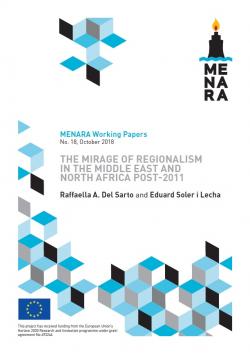The Mirage of Regionalism in the Middle East and North Africa Post-2011
Existing regional cooperation platforms in the Middle East and North Africa (MENA) region are internally fragmented and largely ineffective. Focusing on the League of Arab States, the Gulf Cooperation Council (GCC) and the Arab Maghreb Union, this paper discusses attempts to re-energize and instrumentalize existing regional organizations following the Arab uprisings. It shows that regional developments at the time provided significant opportunities for regional cooperative security mechanisms to emerge, resulting in an exceptional but brief period of activism by these organizations. As the mirage of regionalism quickly faded, intra-regional rivalries, in a period of pronounced uncertainty, led to the eventual failure to foster any significant regional cooperation. While internal divisions are currently threatening the very survival of the GCC, new and potentially short-lived forms of cooperation have been emerging, with bilateral alliances between like-minded regimes becoming prominent. MENA is an increasingly fragmented but simultaneously interconnected region, as exemplified by the mismatch between failed regionalism and a growing regionalization. Concurrently, the contours of MENA regional dynamics are becoming increasingly blurred as sub-regions are transformed into the borderlands of specific regional cores, with some players in the Gulf emerging as such cores.
-
Details
Rome, IAI, October 2018, 18 p. -
In:
-
Issue
Working Papers 18
Introduction
1. The Arab Uprisings: Encouraging or Preventing Regional Cooperation?
2. The Arab League: Back to Normal
3. The Gulf Cooperation Council: The Success Story Becomes Collateral Damage
4. Meanwhile, in the Maghreb: The Long-Lasting Algerian–Morocco Rivalry and the Paralysis of the Arab Maghreb Union
Conclusions
References



